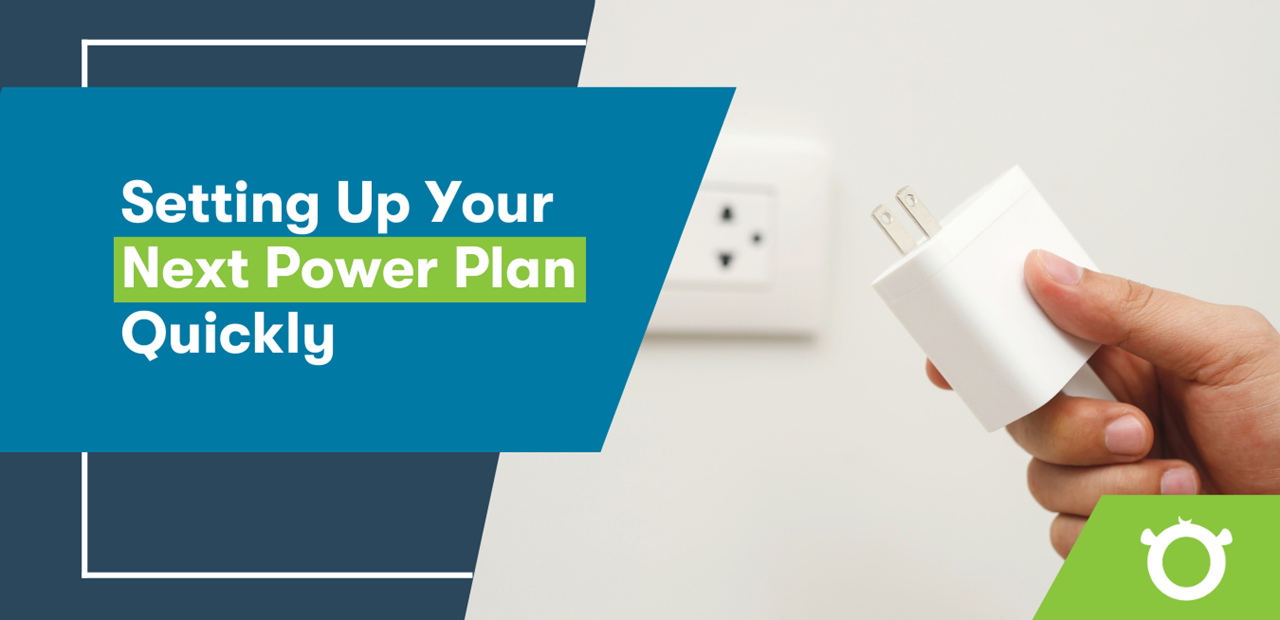
Understanding Mortgages with TDECU: Misconceptions & Red Flags to Avoid
Buying a home is one of the most significant financial decisions most people will ever make. Yet, navigating the mortgage process can be overwhelming, especially with all the information (and misinformation) out there. Understanding how mortgages work, common financial misconceptions, and red flags can help you avoid pitfalls and make informed decisions that align with your long-term goals.
Table of Contents
What Is a Mortgage?
At its core, a mortgage is a loan used to buy property. As Britney Samperi, Business Development Professional at TDECU, explains, “A mortgage allows individuals to purchase property without having to pay the full price upfront.” Since most people don’t have enough cash to buy a home outright, a mortgage makes homeownership possible by spreading the cost over 15, 20, or 30 years.
When you secure a mortgage, you agree to repay the loan amount (the principal) plus interest over time. Your home serves as collateral, meaning the lender can take possession of it through foreclosure if you fail to make payments. Mortgages are structured into monthly payments that often include:
- Principal: The amount you originally borrowed
- Interest: The cost of borrowing the money, usually expressed as a percentage
- Insurance: Homeowners insurance and, in some cases, private mortgage insurance (PMI)
The type of mortgage, your interest rate, and other factors determine how much you’ll pay each month and over the life of the loan.
The Mortgage Process
The mortgage process can seem overwhelming, especially if you're unfamiliar with how it works. Here’s a simplified breakdown of the typical steps involved:
- Application: You start by applying for a mortgage. This involves filling out forms and providing financial documents, such as proof of income and your credit report.
- Approval and Qualification: Your lender will review your application and credit score, as well as assess your debt-to-income ratio (DTI). Your DTI is how much you owe each month versus how much you earn. As Samperi notes, "We look at your DTI to assess your ability to manage mortgage payments alongside your other debts."
- Down Payment: Depending on the type of mortgage, you may need to make a down payment—typically around 20% of the home's purchase price for conventional loans. However, there are loans that require less or even no down payment.
- Monthly Payments: After securing the mortgage, you’ll begin making monthly payments, which include principal, interest, insurance, and any other fees required by the lender.
Types of Mortgages
Different types of mortgage loans exist, and knowing which one is right for you can save you a lot of money in the long run. Common types of mortgages include:
- Conventional Loan: Not backed by the government and usually requires a higher credit score and a larger down payment.
- Adjustable-Rate Mortgage (ARM): The interest rate is fixed for a certain period and then adjusts periodically based on market conditions.
- FHA Loan: Backed by the federal government and designed for first-time or low-income homebuyers.
At TDECU, for instance, they offer in-house mortgage products that may have more flexible terms than government-backed loans. These products may offer borrowers more options to suit their needs.
TDECU: Your Trusted Partner in Homeownership
One of the standout benefits of working with TDECU is their wide range of in-house loan products. Dack VanOrden, TDECU Mortgage Professional, explained that TDECU can offer more than the standard range of mortgages available at other institutions.
"In addition to the traditional loan options—conventional, FHA, VA—we have about 30 to 40 in-house products," VanOrden noted. These unique offerings allow TDECU to cater to a wide range of buyers, including those looking for everything from a single-family home in a suburban neighborhood to a beach condo in Galveston or land in Lake Jackson.
Many lenders can’t accommodate these diverse needs, but TDECU strives to be a one-stop shop for all types of mortgage lending. Whether you're purchasing land, a home, or looking to invest in a second property, TDECU offers solutions that fit your financial goals.
- For those struggling to save for a down payment, TDECU offers solutions like their No-Money-Down loan. This in-house product is a 30-year conventional loan that only requires a 660 credit score and allows a debt-to-income ratio up to 45%. “We have a little more flexibility because this is our own product,” Samperi explained.
- Another option is the American Dream loan, which allows borrowers to roll in 3% of their closing costs into their loan. While this is an adjustable-rate mortgage (ARM) product, Samperi noted that many borrowers choose to refinance before the rate adjusts, often within seven years.
Both products come with the added benefit of no PMI, which can save borrowers hundreds of dollars on their monthly payments.
When asked why homeowners should choose TDECU over other lenders, Samperi responded, “We make the process as transparent as possible. Our goal is to be a trusted partner in what can be a scary process, helping people make informed decisions and feel more comfortable.”
Mortgage Misconceptions
1. The Interest Rate Is Everything
One of the biggest myths is that the interest rate is the most important factor in choosing a mortgage. While interest rates are important, they’re just one part of the overall cost. A lower interest rate doesn’t always mean a lower monthly payment.
As Samperi points out, “Borrowers often focus too much on the interest rate and overlook other factors like mortgage insurance, fees, and the total cost over the life of the loan.”
For example, TDECU doesn’t require private mortgage insurance (PMI) on many of its loans, which can save you hundreds each month. Even if another lender offers a slightly lower interest rate, you might end up paying more overall due to hidden fees or insurance costs. The key is to look at the total monthly payment, not just the interest rate.
2. I Need a 20% Down Payment
Another common belief is that you must put down 20% of the home's price to qualify for a mortgage. While a 20% down payment helps, many loan programs allow for much smaller down payments.
TDECU’s No-Money-Down loan, mentioned previously, lets qualified borrowers secure a home loan without having to save for years to meet a 20% threshold. The aforementioned American Dream loan rolls closing costs into your mortgage, further reducing the upfront burden.
In today’s competitive housing market, waiting to save for a 20% down payment could cause you to miss out on opportunities. Understanding that there are flexible options available can get you into a home sooner than you might think.
3. Refinancing Always Saves Money
Refinancing your mortgage can be a smart financial move—but it’s not always guaranteed to save you money. Refinancing typically involves getting a new loan to replace your existing one, often to secure a lower interest rate.
However, as VanOrden explains, “Refinancing only makes sense if you can improve your financial situation, whether through a lower rate, shorter term, or better loan structure.”
It is important to factor in the costs of refinancing, including closing fees and any penalties for breaking your current loan. Refinancing could reduce your monthly payments but lengthen the loan term, increasing your total interest paid over time. Always evaluate the bigger financial picture before refinancing.
Mortgage Red Flags
1. Flashy Online Mortgage Offers
Flashy online mortgage ads often promise ultra-low rates, but beware that these offers usually come with fine print. Many of these rates are only available to borrowers with the highest credit scores, and hidden fees can significantly increase your costs. Always read the details carefully and be cautious of online lenders that pressure you to make quick decisions without fully explaining the terms.
2. Hidden Fees and Lack of Transparency
Some lenders may not be upfront about the true cost of your mortgage. Fees like origination fees, processing charges, and PMI can add up quickly.
In some cases, TDECU may waive the 1% origination fee, making the process more affordable. A reputable lender should always provide a clear breakdown of all costs and fees associated with your loan before you sign anything.
3. High-Pressure Tactis
If a lender is pressuring you to act quickly without explaining all the details, that’s a major red flag. A trustworthy lender will take the time to educate you about your options and answer all your questions.
At TDECU, they believe in empowering borrowers with knowledge, not rushing them into decisions. Their team works to make sure you understand every part of the mortgage process so you can feel confident in your decision.
Wrapping Up
Conclusion
Understanding what a mortgage is—and the misconceptions and red flags that come with it—can help you make informed decisions that benefit your financial future. TDECU is there to guide you every step of the way, offering personalized mortgage products and transparent advice to help you secure a loan that fits your needs.
Whether you’re a first-time homebuyer or looking to refinance, TDECU’s team of experts is ready to help you navigate the mortgage process with confidence. With flexible in-house loans, waived fees, and no PMI on select products, they are committed to providing solutions that save you money and help you reach your homeownership goals.
TDECU Free Financial Calculators
Need help budgeting, estimating loan payments, or comparing financial options? Use TDECU’s free financial calculators to plan for the future and make informed decisions that align with your personal finances and goals.
- Auto Loan Calculator
- Certificate of Deposit (CD) Calculator
- Credit Card Calculators
- Loan Calculators
- Mortgage Calculators
- Retirement Calculators
- Savings Calculators
Partnership Between TDECU and Energy Ogre
TDECU's commitment to offering beneficial services doesn’t stop there. In fact, the TDECU has a partnership with Energy Ogre, an electricity management company that finds the best possible electricity plans for our members.
"Energy Ogre takes the complexity out of navigating electricity contracts,” VanOrden explained. "It’s a lot like what we do at TDECU—helping people avoid pitfalls and get the best deal possible. There’s a lot of crossover in the service mentality."
Laura Whitley, Market President at TDECU, encourages members to explore the energy savings available through this collaboration.


 EST. 2013
EST. 2013



.png)
